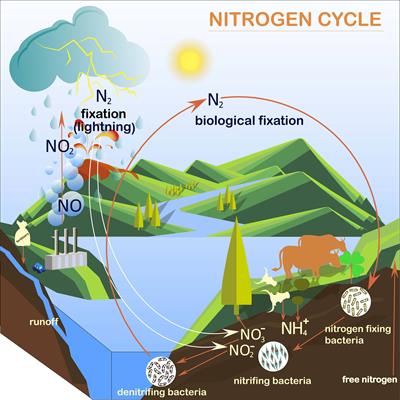"I can't be vegan because I need protein!" This is one of the most common statements I hear from non-vegans. Well, we know that this not true. ALL PROTEIN ORIGINATES IN PLANTS! So in fact, this common statement is actually a huge misunderstanding and is unfortunately very misleading to the public. As an athlete I've always been told to be big and strong I need to eat a lot of meat and drink a lot of milk. The commercials full of professional sports players helping market these products only engrained it more into my brain. I had never thought to question the narrative and search for body-builders, Olympians, and champions who were plant-based and thriving. I dismissed any plant-related news due to the misnomer of plant protein being inferior to animal protein or "not the complete package". I had to question my diet and do some nutrition research. So, let's cover what protein is and how it affects our bodies.
What is protein?
Proteins are nitrogenous organic compounds consisting of one or more chains of amino acids. They are an essential part of all living organisms, primarily as structural components of body tissues like muscle, hair, collagen, and more. Proteins may also function as enzymes and antibodies. There are 22 amino acids that are the foundational blocks needed to form the chains for protein to exist. Because we don’t store amino acids, our bodies make them in two different ways: either from scratch or by modifying others. There are nine amino acids known as the essential amino acids that must come from food: valine, isoleucine, leucine, lysine, methionine, phenylalanine, threonine, tryptophan, and histidine. Protein can power many chemical reactions and the hemoglobin that carries oxygen in our blood. Only plants can break down atmospheric nitrogen with bacteria and make it useful for all living organisms. Now that we have an idea of what protein is, let’s discuss how much we actually should include in our consumption.
Building muscle

If you are like me, at some point in your life you have been told the more protein you get the more muscle you build. I used to hear of bodybuilders chowing down 6 eggs for breakfast mixed with a protein shake and some pre-workout. This is OVERKILL! Protein metabolizes in our liver and can only handle but so much until it reaches a point of toxicity. Overconsumption can significantly increase the chances of chronic disease, tumors, and other cancerous free radical cells, and also increase the speed of aging hormones. Protein should result in an estimated 10-11% of our daily calories which is a lot lower than the public consensus. The recommended amount of calories (2,000-2,600kCal) for the average human is about 35g per day for women and 50g per day for men. Our bodies cannot store protein! The proteins that do not go to waste are turned into carbohydrates and excess carbohydrates are stored as FAT! Unquestionably our protein intake should be monitored closely. We understand what protein is and how much we need, but perhaps the most important question is: In what foods do we find it?

BEANS AND LEGUMES
VEGETABLES
NUTS AND SEEDS
WHOLE GRAINS / SPROUTED GRAINS
FRUITS
PLANT MILKS
Animal Protein
The negative effects of animal proteins have come to the surface. The animals’ proteins are filled with animal hormones and DNA that are not meant to be consumed by humans. But, animal protein contains sulfur that is converted into sulfuris acid which needs to be buffered by phosphate or it will result in the excretion of calcium. Plant proteins already come buffered by phosphate resulting in NONE of the problems associated with animal protein such as kidney stones, liver damage, weight gain, and much, MUCH more. Please consider this when you get to that crossroads point in the grocery store where you can choose to pick up some fresh whole plant foods, or an animal part that is not fresh and loaded with cholesterol, saturated fat, trans fat, illnesses, hormones, and blood. You can get bags of vegetables, fruit, beans, nuts, and seeds to last you a couple of days for under $15 in the produce aisle!
I hope we all can make the best steps toward our health in choosing what we eat. Let’s build big, strong, and healthy bodies with the power of PLANTS!
Key Takeaways
All protein comes from plants!
All amino acids are present in plants
You can overconsume protein and cause health issues in the kidney and liver
Muscle building is fueled by carbs as protein recycles itself within the body
Eat a wide variety of whole plant foods and protein deficiency is non-existent
Sources Cited
https://www.vrg.org/nutrition/protein.php



Comments